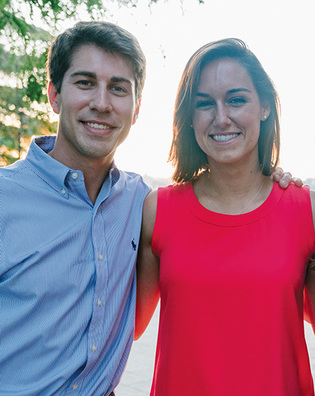 loading
loading
Sporting LifeTaking a hit—and learning a lessonTwo hockey alums spread the word about concussion recovery. Evan Frondorf ’14 is the coauthor of Drug Wars, recently released by Cambridge University Press.  Andrew Goble ’15Danny Otto ’12 and Paige Decker ’14 were both Yale hockey players, and both sustained severe concussions on the ice. Along with a Harvard grad, they’ve formed a nonprofit to promote concussion awareness and support athletes looking for treatment. View full imageIn November 2013, an illegal hit from behind ended the ice hockey career of Paige Decker ’14. The ramifications spread far beyond the ice: post-concussion symptoms have plagued her for nearly four years. She struggled through her final semester, and, shortly after starting a post-graduate job in Boston, she had to move back to her parents’ Connecticut home. The former forward traveled through the United States and Canada looking for solutions. She tried a procedure known as prolotherapy, receiving 14 consecutive injections in her neck. The result was a severe nervous system reaction that caused debilitating chronic pain, involuntary twitching, chills, and other problems. It turned out that along with her concussion, she had received severe, undiagnosed whiplash; the injections only served to make her problems worse. “When you don’t have a system in place or guidance [to] help you get well,” says Decker, “you end up resorting to desperate measures.” A concussion rehab program in Ontario helped give Decker her life back. She recently moved to Austin, Texas, to start a new job with Facebook. But she’s also used her recovery to start an organization that helps athletes to navigate the concussion recovery process. She paired with Josephine Pucci, a former Harvard hockey player and Olympian, and Danny Otto ’12, whose own concussion and whiplash complications from a hockey injury forced him to withdraw during his final semester. (He returned to finish his degree the following semester.) Together, they started the Headway Foundation. Headway takes a peer-to-peer approach on concussion recovery. “Concussion awareness is improving, but many people still don’t know what to do when they get one. You go on the Internet, and there’s a lot of junk out there,” says Otto, who works for the Yale Investments Office. The foundation advocates an interdisciplinary approach to treatment, centered on a “quarterback,” a medical professional who coordinates care across different specialists and health-care professionals. The nonprofit is also working to change the culture around concussions with its “New Tough” pact, by which athletes pledge to report concussion symptoms as soon as possible. “The old ‘toughness’ is that you should play through it like any other injury,” says Otto. “This is a way to change the mindset. It requires more mental toughness to pull yourself out of the game if you suspect something isn’t right.” Headway’s efforts are ramping up. In February, the group held a Concussion Awareness Weekend in collaboration with the ECAC hockey organization: during the weekend of league games, more than 600 athletes took the New Tough pledge and wore Headway stickers on their helmets. In July, the founders spoke at an annual Big Ten–Ivy League summit on traumatic brain injuries. Their cautionary tales have been detailed in publications including Sports Illustrated and the New York Times. Headway is also involved in a series of charity games and the development of a webinar series featuring leaders in the field providing guidance on the recovery process. Says Otto, “Fortunately and unfortunately, through our experiences we’ve gotten to know some of the leading people in the industry.” And the group will always have a focus on connecting directly with athletes starting their own long paths to recovery. From care packages to phone calls, says Otto, “compassion is so important.”
|
|
1 comment
-

Donald Shinners, 3:10pm September 29 2017 |  Flag as inappropriate
Flag as inappropriate
The comment period has expired.Most impressive!